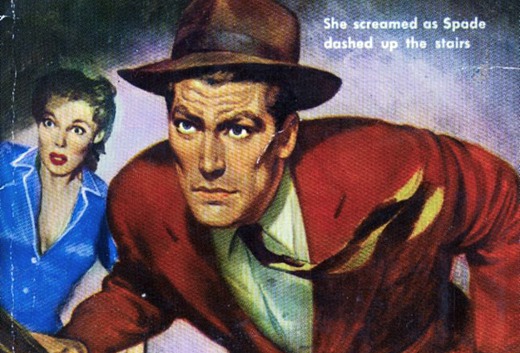I grew up with my nose buried in a book. Bet you did too.
For me, Tom Swift and Nancy Drew and The Hardy Boys were followed by the
seminal SF of Robert Heinlein, A.E. Van Vogt, Richard Matheson, and of course
Ray Bradbury. When I was in my early teens I discovered some Shell Scott and
Donald Hamilton mass-market paperbacks under my Grandfather’s sink on the
ranch. (Okay, I found some girlie magazines there too but that’s a story for
another day). Those Gold Medal paperbacks also hooked me instantly. I collected
them for years. I still own every Travis McGee book written by the great John
D. MacDonald, and most of his other sixty-odd novels as well. My home is filled
with books, as is my office.
I wallowed in the style, the drama, the rapid pace of pulp fiction, hell, novels of any stripe. The spy novels of the sixties, the horror of the seventies and eighties, historical fiction, mysteries and thrillers, you name it. The point it, like most of us, I’ve always loved to read—and thus always dreamed of becoming I writer. I started writing early, and could soon hammer out a pretty good sentence. Eventually I even had a style, mostly likely just a loose combination of bits and pieces from every author I’d admired, but it was mine. So I kept on writing…and getting rejected. It turns out that one thing nagged me constantly, held me back and rarely failed to trip me up.
Structure gave me fits.
I
can write the story, I thought, but
how do you tell the story?
The answer turned out to be simple, though not necessarily
easy. You study structure, at least for a while. Look, I’m not going to sit
here and recommend that everyone interested in writing go get an advanced
degree, or even suffer through reading Robert McKee’s pretentious tome Story, but I did learn the hard way that
a working understanding of structure is essential to becoming a half way decent
writer. I applied these principles to my first Mick Callahan mystery Memorial Day, and it did quite well.
In a nutshell, what I learned back then is this. Aristotle said
a good story must inevitably consist of three parts, a beginning, middle and
end. Thus we have the classic (and overused) three-act screenplay structure,
with an inciting incident beginning the tale, a first plot point creating the
second act—generally about fifty percent of the piece—and a third plot point
creating the final act, i.e. the last quarter. A smart person will also soon learn
to divide the middle act into three distinct smaller acts, and thus push the
tale forward with ever more momentum. Oh, and as the middle of most novels has
a tendency to sag, it’s smart to plot a key event or reversal of some kind and
drop it in there to keep the reader from losing interest.
There you have it, more or less. You may already know all
about this stuff, but I figured I’d mention it anyway.
I found the concept of story structure quite illuminating.
It led me to an interest in mythology and comparative religion. I treasured
Joseph Campbell’s The Hero With a Thousand
Faces, and can also recommend the book The
Writer’s Journey by Christopher Vogler, which lifted from the work of both
Carl Jung and Professor Campbell. See, Jung noted that great stories have been
with us forever, and most have certain predictable elements which tend to be
arranged in a specific order. Joseph Campbell carried those concepts further, eventually
applying them to mythology and religion as well as folk and fairy tales from
around the globe. I think it was James Joyce who dubbed the basic story the “Mono Myth,” i.e. one of separation, initiation
into some form of rarified knowledge, and then return, usually to share that
knowledge, even if only by example. Think of Prometheus and the fire, or Icarus
and his rapidly melting wings.
Once you learn to apply these basic thoughts to your mystery
or thriller, the pacing will improve and the story will probably feel easier to
knit together.
Obviously one can overdue this stuff, and end up feeling
rigid and predictable, but for me, not planning at all feels to me like
painting a room without prepping it, or building an office complex without a
blueprint. In summary, it is my humble opinion that we need three primary
things to write well (a) good characters (b) a readable style, well presented
and (c) at least a good, working grasp of story structure. The more we write,
the less many of us seem to need to plan out in advance. I suspect the mind learns
these basic tricks over time. One hopes. After all we do ultimately learn to
write by writing.
Speaking of writing, I’d better get back to work. I have a
fifth Mick Callahan novel to plot out.





